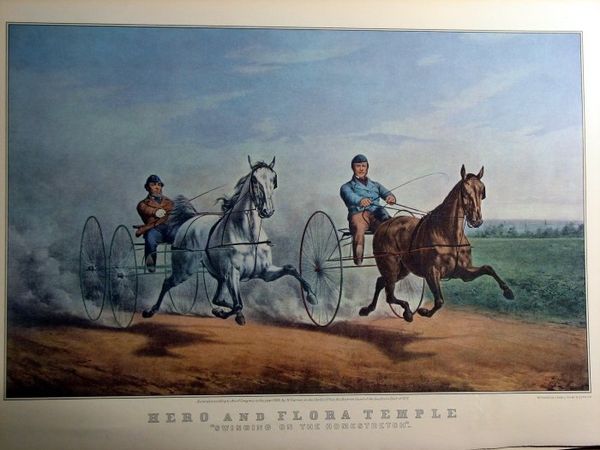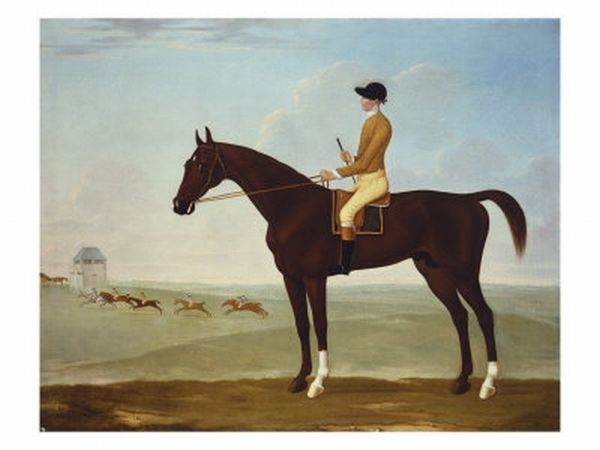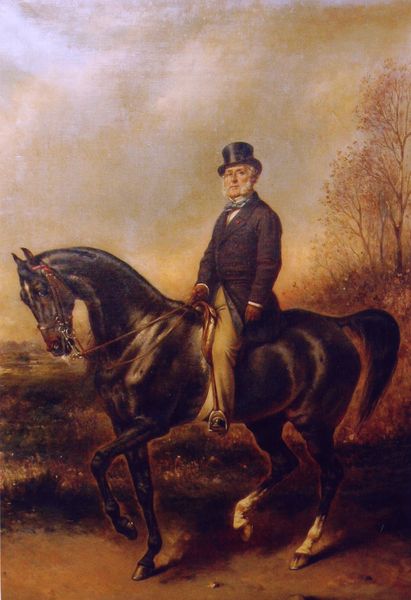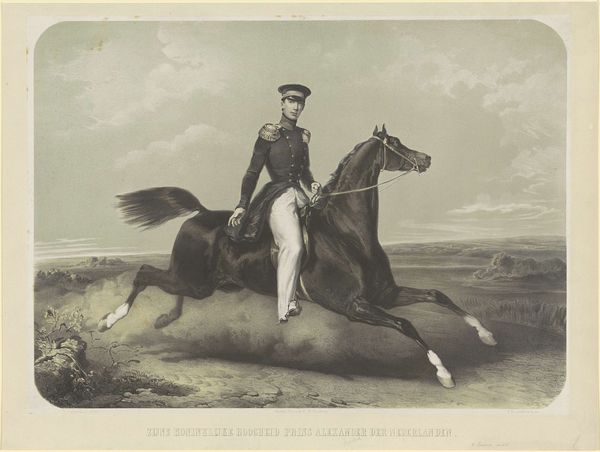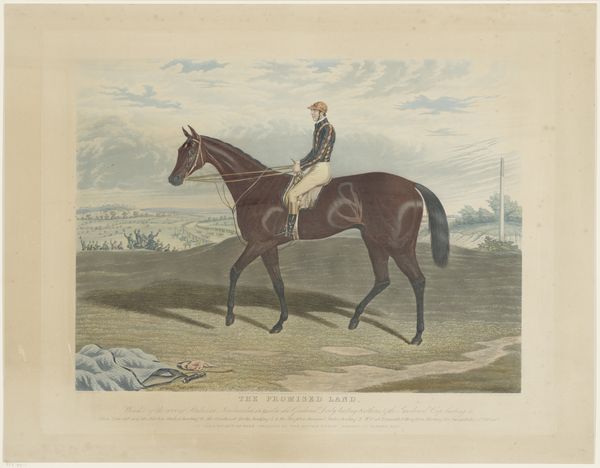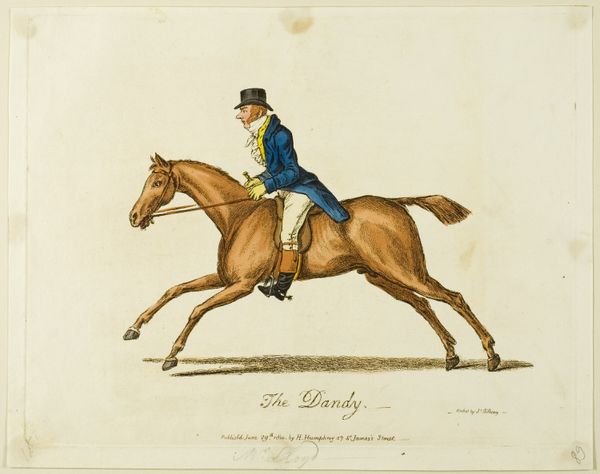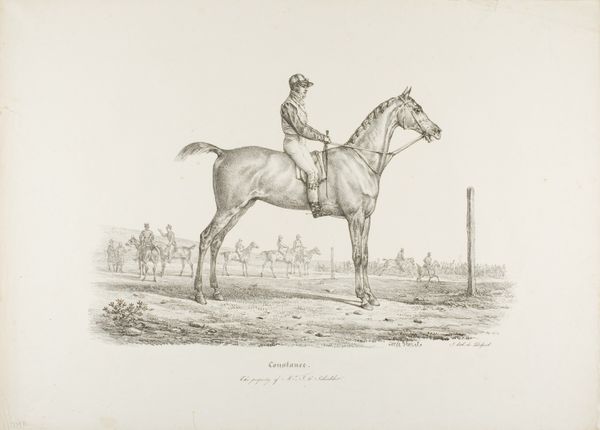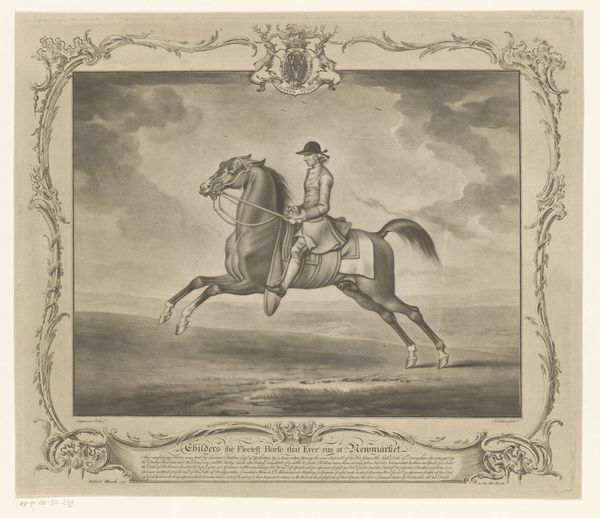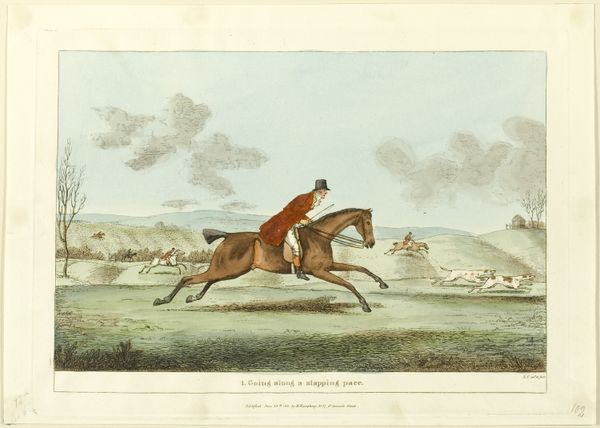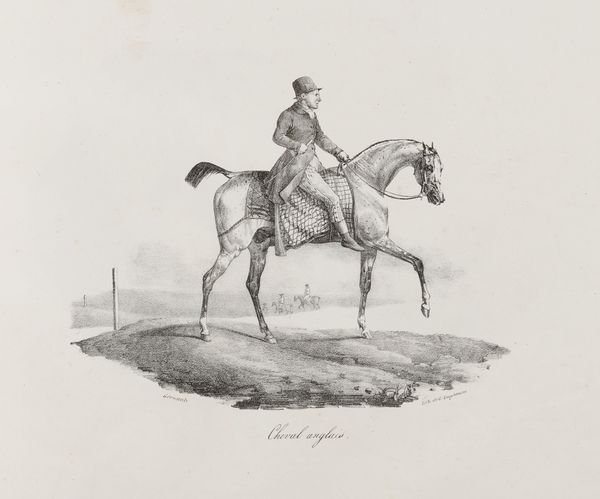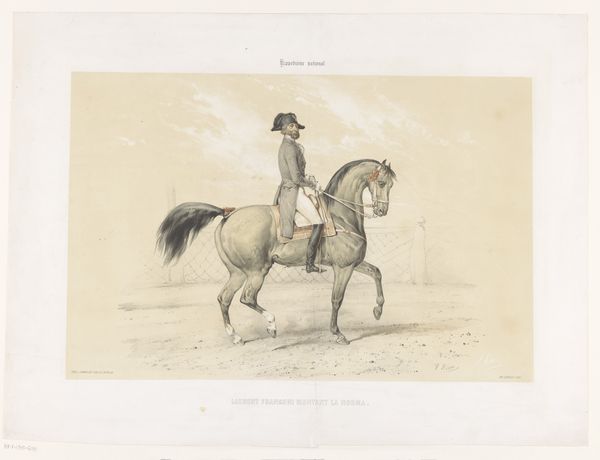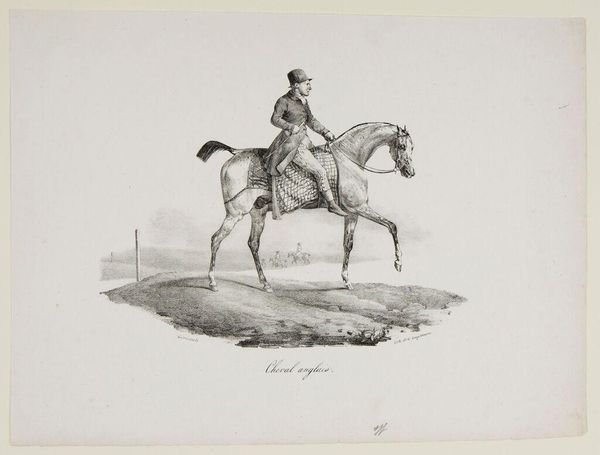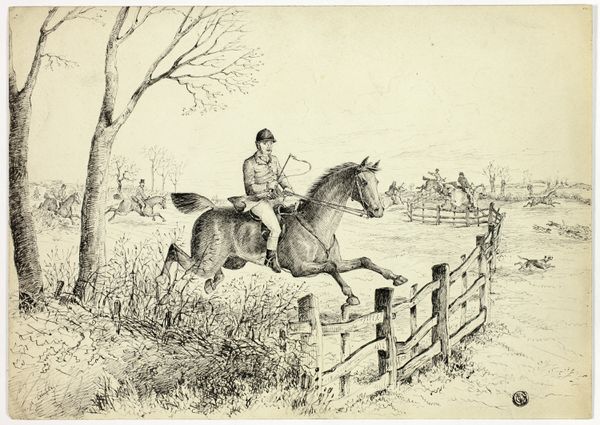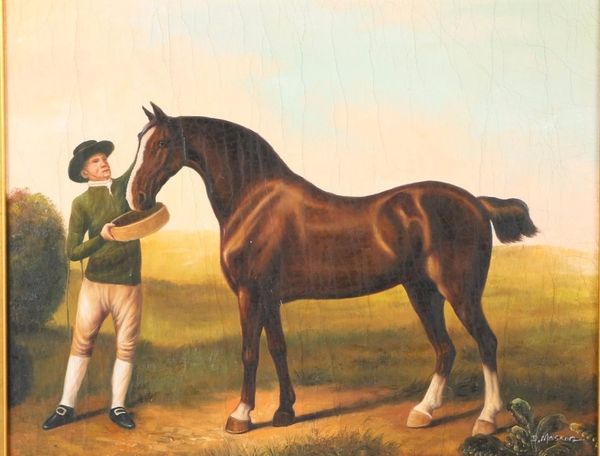
Copyright: Public domain
Curator: What a vivid snapshot of its time. This is “Dexter, 'The King of The Turf',” a lithograph print crafted around 1865 by Currier and Ives. Editor: The title itself seems so confident. At first glance, I'm struck by its static energy, like a fleeting moment captured forever. There is something about this particular work's medium of lithograph and the subject of a horse that seem like symbols from an earlier age, and the Romanticist painting style evokes that period as well. Curator: Absolutely, there's a certain frozen grandeur here. The lithograph medium, in particular, lent itself to widespread distribution, essentially democratizing images of this sort. Think of how deeply entwined the horse was with ideas of progress, power, and leisure at that time. The horse represents all of that to people even to this day, doesn't it? Editor: The horse certainly does! When the Industrial Revolution had exploded with the advent of machine technology, there came this Romanticist fascination of simpler times and harmony with nature, where the horse stands for our historical connection to the earth. As the "king of the turf," Dexter not only signifies speed and strength, but also the cultural values being renegotiated during the shift from agrarian society into something much more industrial. Curator: Precisely. Even the colors, subdued yet dignified, speak to that era. The image emphasizes cultural continuity by reminding viewers of their emotional attachment to nature, symbolized by Dexter, the celebrated horse of leisure. Editor: Indeed. It's as much a commentary on the anxieties and aspirations of a rapidly changing world as it is a celebration of a champion horse. There is some complexity behind this work even in its rather plain imagery. Curator: I agree. In a world that continues to change rapidly, that relationship feels perpetually resonant, which means "Dexter" has relevance far beyond just its initial context. Editor: I concur. We continue to renegotiate our changing connection to the world through new forms of romanticizing the old ways. That's worth holding on to.
Comments
No comments
Be the first to comment and join the conversation on the ultimate creative platform.
